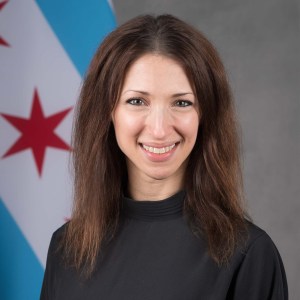What role does innocence play in the criminal justice system, and what role does it play in the procedures of the criminal justice institutions in Chicago? In a perfect system innocence would be the paramount concern; however, our system is far from perfect. We have a system based on an adversarial process that is more about winning than it is about discovering truth. Truth actually plays almost no role in our system, about an equal role to innocence. Employees work towards goals that are established by the organizations they work for.
The criminal justice system has been criticized for failing to reform the practices of its employees. One of the main reasons why they have failed to alter the behavior of their employees is because they never altered the reward system that their employees are working within. For Chicago Police Officers the reward system is based on the number of arrests they make. This system is not based on the quality of the arrests or the truthfulness of the guilt of the offender. Once charges are approved, the responsibility for the quality of the arrest is removed from the officer and they are credited with the arrest in the scorebook within the Chicago Police Department. Within the Chicago Police Department little or no consideration is put forth on the topic of the offender’s innocence. The topic covered is whether or not there is the evidence to prove guilt; the lack of evidence is not due to an individual’s innocence. Once an individual is bought into the station all possibilities of an individual being innocent are dead.
History, recent and not so recent, is replete with examples of Chicago Police Officers burying evidence that would prove the innocence of their suspects. They have even subjected suspects to torture to gain confessions to crimes for which they had no other corroborating evidence. The Cook County State’s Attorney’s Office’s reward system is as efficient as the CPD’s in obliterating a suspects presumption of innocence. Prosecutors are rewarded on the number of convictions they obtain. They face no repercussions for cases being overturned for any reason, especially for prosecutorial misconduct. Prosecutors have no motivation to seek-out the innocence of the individuals they are prosecuting. In reality, they have motivations to turn a blind-eye to the truthfulness of the information they are presented with by the police.
To take this discussion to another level we now have the intersection of these two agendas. Police hand prosecutors cases that are developed on biased evidence. Prosecutors in-turn take those cases and run with them without questioning the information they have received from the cops. The main question that arises from this intersection is where in this interaction does each of their respective responsibilities come into play. Both the police and prosecutors have responsibilities to serve as checks on the practices of each agency. Where in the system does the check exist? Both the police and prosecutors fail to live up to their responsibilities to serve as a check and balances on each other practices. They disregard their obligations because the practices of each agency serve their mutual purposes. It is not that there is this mutually agreed upon conspiracy that has been hatched in some dark alley in Chicago.
There is a conspiracy that is ongoing because they all share mutual interests, this means there is a conspiracy of like-mindedness. This means that they turn a blind eye to the overstepping of the other agency because they all benefit from the wrongdoing. This affects of this conspiracy of like-mindedness is detailed in the extremely poorly researched and written report of the Special Council investigating the Burge torture complaints. This report was researched and written by a man who was once a Cook County Prosecutor. You can see that his allegence was still with the office and not with the truth. If it was he would turned down the appointment due to the fact that his nephew was a detective that worked with the accused officers for many years, all of which were the years they are suspected of torturing dozens if not hundreds of suspects.



